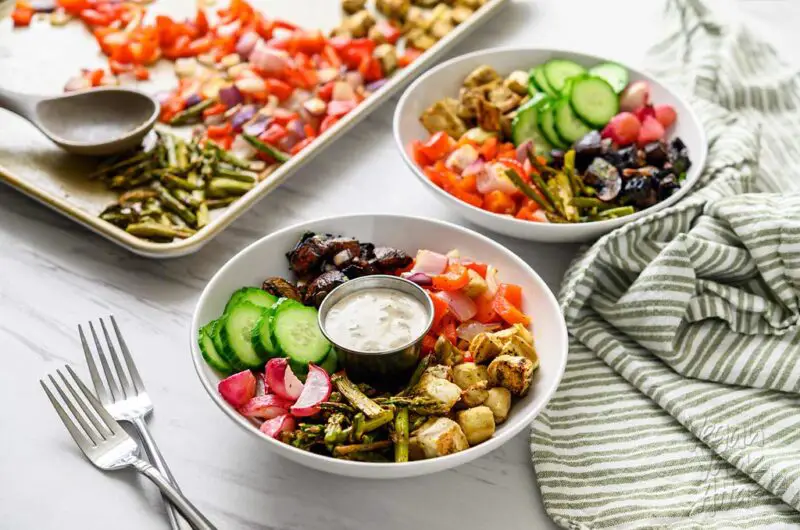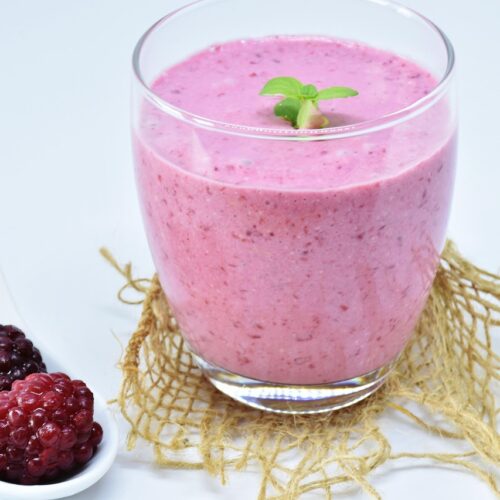The Mediterranean diet has long been celebrated as one of the healthiest eating patterns in the world, consistently linked to lower rates of heart disease, diabetes, and even cognitive decline. Rooted in the traditional cuisines of countries like Greece, Italy, and Spain, this diet emphasizes fresh, whole foods, lean proteins, and healthy fats. But what happens when you take this already heart-friendly approach and make it entirely plant-based? The result is a powerful synergy of flavor, nutrition, and sustainability that can transform your kitchen—and your health. In this article, we’ll explore the principles of heart-healthy Mediterranean plant-based cooking, its benefits, key ingredients, and practical recipes to get you started.
Why Mediterranean and Plant-Based?
The Mediterranean diet’s heart-healthy reputation stems from decades of research, including the famous Seven Countries Study in the mid-20th century, which found that people in Mediterranean regions had significantly lower rates of cardiovascular disease compared to those in Northern Europe and the United States. The diet’s emphasis on olive oil, nuts, whole grains, fruits, vegetables, and legumes—paired with moderate wine consumption and minimal processed foods—offers a blueprint for longevity.
A plant-based twist takes this a step further by eliminating animal products, including meat, dairy, and eggs, while retaining the diet’s core principles. This shift aligns with growing evidence that plant-based eating can reduce cholesterol levels, lower blood pressure, and decrease inflammation—all critical factors in preventing heart disease. A 2019 study published in the Journal of the American Heart Association found that plant-based diets were associated with a 32% lower risk of cardiovascular disease. Combine that with the Mediterranean flair for flavorful, antioxidant-rich ingredients, and you’ve got a winning formula for both your heart and your taste buds.
The Heart-Healthy Benefits
Switching to a Mediterranean plant-based diet offers a cascade of cardiovascular benefits:
- Cholesterol Control: By replacing saturated fats (found in meat and dairy) with unsaturated fats from olive oil, nuts, and seeds, you can lower LDL (“bad”) cholesterol levels without sacrificing satisfaction.
- Blood Pressure Regulation: The abundance of potassium-rich foods like leafy greens, tomatoes, and legumes helps counteract sodium’s effects, promoting healthy blood pressure.
- Reduced Inflammation: Antioxidant-packed ingredients like berries, artichokes, and herbs combat oxidative stress and inflammation, which are underlying drivers of heart disease.
- Weight Management: High-fiber foods such as whole grains and vegetables keep you full longer, reducing the temptation to overeat and supporting a healthy weight—a key factor in heart health.
- Improved Gut Health: A plant-based Mediterranean diet is rich in prebiotics (from fiber) and polyphenols (from fruits and olives), fostering a diverse gut microbiome that supports overall wellness, including heart function.
Beyond the science, this way of eating is sustainable and accessible. It celebrates seasonal produce and simple preparation, making it as kind to the planet as it is to your body.
Core Principles of Mediterranean Plant-Based Cooking
To master this culinary style, focus on these foundational elements:
- Center Vegetables and Fruits: Make produce the star of every meal. Think roasted eggplants, grilled zucchini, or a vibrant salad with tomatoes, cucumbers, and parsley.
- Embrace Whole Grains: Swap refined grains for nutrient-dense options like farro, quinoa, or whole-wheat couscous.
- Prioritize Healthy Fats: Olive oil is the cornerstone, used for cooking, dressings, and dips. Add avocados, nuts, and seeds for variety.
- Lean on Legumes: Chickpeas, lentils, and white beans provide protein, fiber, and a hearty texture.
- Season with Herbs and Spices: Fresh basil, oregano, rosemary, and garlic elevate flavors without relying on salt.
- Minimize Processed Foods: Stick to whole, unrefined ingredients to maximize nutrition and avoid hidden sodium or sugars.
This isn’t about deprivation—it’s about abundance. The Mediterranean palate thrives on bold flavors and satisfying combinations, all while keeping your heart in mind.
Key Ingredients to Stock Your Kitchen
Building a heart-healthy Mediterranean plant-based pantry is simple. Here’s what to keep on hand:
- Olive Oil: Extra virgin is best for its high antioxidant content. Use it generously in cooking and dressings.
- Legumes: Dried or canned chickpeas, lentils, and cannellini beans are versatile protein sources.
- Whole Grains: Stock up on brown rice, bulgur, and whole-grain pasta for hearty bases.
- Nuts and Seeds: Almonds, walnuts, and tahini add crunch and healthy fats.
- Vegetables: Tomatoes, spinach, kale, artichokes, and bell peppers are staples.
- Fruits: Citrus, figs, grapes, and berries bring natural sweetness and vitamins.
- Herbs and Spices: Fresh dill, parsley, thyme, and dried cumin or paprika pack a flavor punch.
- Vinegars: Balsamic and red wine vinegar brighten dishes without extra calories.
With these essentials, you’re ready to whip up meals that are as delicious as they are nutritious.
Recipes to Get You Started
Let’s dive into three heart-healthy, Mediterranean-inspired plant-based recipes that showcase the diet’s versatility. Each is designed to be approachable, flavorful, and packed with nutrients.
1. Chickpea and Spinach Stew (Serves 4)
Ingredients:
- 2 tbsp extra virgin olive oil
- 1 medium onion, diced
- 3 garlic cloves, minced
- 1 tsp ground cumin
- 1 tsp smoked paprika
- 1 (15 oz) can chickpeas, rinsed and drained
- 1 (14 oz) can diced tomatoes
- 2 cups vegetable broth
- 4 cups fresh spinach
- Salt and pepper to taste
- Fresh parsley, chopped (for garnish)
- Lemon wedges (for serving)
Instructions:
- Heat olive oil in a large pot over medium heat. Add onion and sauté until translucent, about 5 minutes.
- Stir in garlic, cumin, and paprika; cook for 1 minute until fragrant.
- Add chickpeas, tomatoes, and vegetable broth. Bring to a simmer and cook for 15 minutes, stirring occasionally.
- Stir in spinach and cook until wilted, about 2-3 minutes. Season with salt and pepper.
- Serve hot, garnished with parsley and a squeeze of lemon juice. Pair with crusty whole-grain bread for dipping.
Why It’s Heart-Healthy: Chickpeas provide fiber and plant-based protein, while spinach delivers potassium and antioxidants. Olive oil adds monounsaturated fats to support cholesterol levels.
2. Mediterranean Quinoa Salad (Serves 4)
Ingredients:
- 1 cup quinoa, rinsed
- 2 cups water
- 1 cup cherry tomatoes, halved
- 1 cucumber, diced
- 1 red bell pepper, chopped
- 1/4 cup red onion, finely chopped
- 1/2 cup Kalamata olives, pitted and halved
- 1/4 cup fresh parsley, chopped
- 3 tbsp extra virgin olive oil
- 2 tbsp red wine vinegar
- 1 tsp dried oregano
- Salt and pepper to taste
Instructions:
- In a medium saucepan, bring quinoa and water to a boil. Reduce heat, cover, and simmer for 15 minutes or until water is absorbed. Let cool.
- In a large bowl, combine cooled quinoa, tomatoes, cucumber, bell pepper, onion, olives, and parsley.
- In a small bowl, whisk together olive oil, vinegar, oregano, salt, and pepper. Pour over the salad and toss to coat.
- Serve chilled or at room temperature.
Why It’s Heart-Healthy: Quinoa offers complete protein and fiber, while the veggies provide a spectrum of vitamins. Olives and olive oil contribute heart-protective fats.
3. Roasted Eggplant with Tahini Drizzle (Serves 4)
Ingredients:
- 2 medium eggplants, halved lengthwise
- 3 tbsp extra virgin olive oil, divided
- 1 tsp za’atar seasoning
- Salt and pepper to taste
- 2 tbsp tahini
- 1 tbsp lemon juice
- 1 garlic clove, minced
- 2-3 tbsp water (to thin)
- Fresh pomegranate seeds (optional, for garnish)
- Fresh mint, chopped (for garnish)
Instructions:
- Preheat oven to 400°F (200°C). Score the flesh of the eggplant halves in a crisscross pattern. Brush with 2 tbsp olive oil, sprinkle with za’atar, salt, and pepper, and place cut-side up on a baking sheet.
- Roast for 30-35 minutes, until soft and golden.
- Meanwhile, whisk together tahini, lemon juice, garlic, remaining 1 tbsp olive oil, and enough water to make a smooth drizzle. Season with salt.
- Plate the eggplant, drizzle with tahini sauce, and garnish with pomegranate seeds and mint.
- Serve warm as a side or main with a grain like farro.
Why It’s Heart-Healthy: Eggplant is low in calories and high in fiber, while tahini and olive oil provide healthy fats. Pomegranates add antioxidants for an extra boost.
Tips for Success
- Start Small: If you’re new to plant-based eating, ease in by making one meal a day Mediterranean and meatless.
- Batch Cook: Prepare grains and legumes ahead of time to streamline weeknight dinners.
- Experiment: Play with spices and herbs to keep things exciting—there’s no “right” way to season.
- Shop Seasonally: Visit farmers’ markets for the freshest produce, which enhances both flavor and nutrition.
Overcoming Common Challenges
Some worry that plant-based cooking lacks protein or feels restrictive. Not so! Legumes, nuts, and seeds more than meet protein needs, and the Mediterranean palette ensures every dish bursts with flavor. Cost is another concern, but staples like lentils and seasonal veggies are budget-friendly. Time-pressed? Many recipes, like the stew above, come together in under 30 minutes.
A Lifestyle, Not Just a Diet
Heart-healthy Mediterranean plant-based cooking isn’t a fad—it’s a lifestyle rooted in tradition and backed by science. It invites you to slow down, savor your food, and nourish your body with every bite. Whether you’re looking to prevent heart disease, manage existing conditions, or simply eat better, this approach offers a delicious path forward. So grab your olive oil, fire up the stove, and let the Mediterranean inspire your next meal. Your heart will thank you.


















